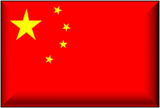West
East Corporation
中国的合作伙伴 : 投资中国,在中国做生意,在中国咨询,使中小型企业国际化
The growth of European direct investment in China
March, 2013The influx of capital from Europe to China has been a dramatic increase. The figure is particularly good, especially if considering it against the general trend of foreign direct investment in the country, which instead have marked a significant contraction.
According to data released by Ministry of Commerce of China, foreign direct investment (FDI) from Europe to China have reached 9.27 billion U.S. dollars, with an increase of even 81.8%. European figure is in absolute contrast to the general trend of the inflow of foreign capital to the country: FDI in China, in fact, have registered, for the first time since 2009, a significant decline. The statistics document that foreign direct investment in China fell by 7.3% in January 2013, after which in 2012 had already decreased by 3.7%, amounting in value to 111.72 billion. In particular, in January investments from the United States fell by 20.0 per cent, those ones from the top ten Asian economies, including Hong Kong, Japan and Singapore, by 9.0 per cent on an annual basis.
“China is at a stage of fast outbound investment and the pace will be faster in the near future. Outbound investments currently focus on resources and mergers and acquisitions, but more will go to manufacturing as China shifts its over capacity to overseas markets.”
"Statistics have shown that the capital actually invested fell and the magnitude of the decline is not 'lightly”," said Shen Danyang, ministry spokesman, explaining that "there are still some good signals, such as growth of 34, 3% the number of new companies to foreign capital "(www.agichina24.it). In an important way to influence these results undoubtedly the increased cost of labor, which makes it less attractive investment in the country. In this sense, in fact, China is gradually losing its advantages as a destination for productive decentralization, circumstance, however, inevitable due to the country's transformation from a developing economy to an advanced economies. The result was affected also, inevitably, by the widespread attitude of prudence on a global level, due to tensions on the international economic scenario. Increasing, conversely, the number of foreign-owned companies incorporated in China and investments abroad by the Dragon.
关于我们
由于我们拥有专业人士和广泛的中国网,也叫作 " 关系 ",我们咨询公司能为打算投资中国的客户提供全方位的支持。而这(尤其是中小型企业)会使公司在中国做生意时的危险和失望减到最少。





